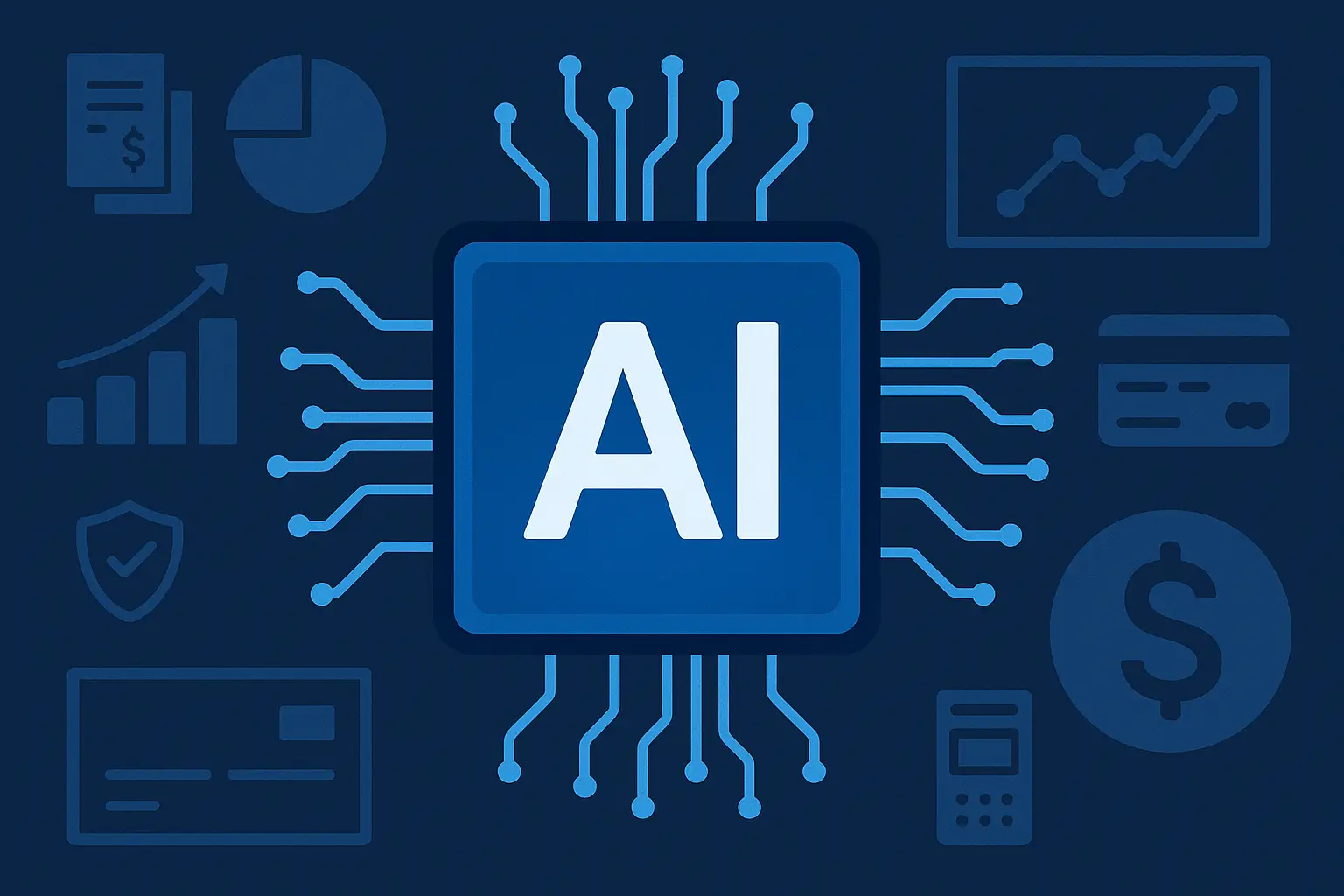Artificial Intelligence (AI) is reshaping the financial services industry from the ground up. Banks, investment firms, and fintech startups are leveraging AI to streamline operations, enhance customer experiences, improve security, and uncover new growth opportunities.
This article explores how AI is transforming the financial sector and what it means for businesses and consumers.
AI in Customer Service
AI-powered chatbots and virtual assistants help financial institutions:
- Answer customer queries 24/7
- Process account transactions and balance inquiries
- Assist with loan applications and credit card issues
- Detect and resolve disputes automatically
Banks like Bank of America (with their assistant Erica) and Capital One (with Eno) use AI to deliver faster, more personalized service.
AI in Fraud Detection and Risk Management
AI systems detect and prevent fraud by:
- Analyzing transaction patterns to spot anomalies
- Flagging suspicious activities in real time
- Scoring transactions based on risk
- Reducing false positives compared to rule-based systems
Machine learning models adapt as new threats emerge, keeping security robust and proactive.
AI in Credit Scoring and Lending
Traditional credit scoring can be slow and biased. AI improves lending decisions by:
- Assessing alternative data (e.g., income flows, social behavior, education)
- Evaluating creditworthiness more accurately
- Automating loan approvals and underwriting
- Predicting default risks with greater precision
This expands access to credit for underserved populations.
AI in Wealth Management
Robo-advisors like Betterment and Wealthfront use AI to:
- Assess clients’ risk tolerance and goals
- Build and rebalance investment portfolios
- Optimize tax strategies
- Provide financial planning recommendations
AI democratizes investing, making sophisticated advice affordable and accessible.
Algorithmic Trading
AI-driven trading systems:
- Analyze market data to identify trends and opportunities
- Execute trades in milliseconds
- Manage portfolios dynamically based on predictive models
Quant funds and hedge funds rely on AI algorithms to outperform traditional strategies.
Personal Finance Management
AI helps individuals manage their money through:
- Smart budgeting tools that categorize expenses
- Personalized savings recommendations
- Predictive cash flow analysis
- Alerts for unusual spending or upcoming bills
Apps like Cleo and Mint use AI to improve financial literacy and confidence.
Regulatory Compliance (RegTech)
AI assists with compliance by:
- Monitoring transactions for AML (anti-money laundering) activities
- Analyzing contracts and documents for regulatory risks
- Automating reporting and audit preparation
This reduces human error and ensures adherence to complex regulations.
Benefits of AI in Financial Services
1. Efficiency
AI automates routine processes and reduces operational costs.
2. Personalization
Services and recommendations are tailored to individual needs.
3. Security
Advanced fraud detection protects customers and institutions.
4. Accessibility
AI makes banking and investing easier for all users.
5. Innovation
New business models and products emerge through AI capabilities.
Challenges and Considerations
While AI brings clear benefits, it also presents challenges:
1. Data Privacy
Sensitive financial information must be protected.
2. Bias
AI models can unintentionally discriminate if trained on biased data.
3. Transparency
Complex algorithms may be hard to explain to regulators and customers.
4. Regulation
Compliance requirements are evolving alongside AI adoption.
5. Dependence on Technology
System failures or cyberattacks could disrupt critical services.
Future Trends
Looking ahead, we’ll see:
- Hyper-personalized financial coaching
- Voice-activated banking interfaces
- AI-powered ESG (environmental, social, governance) investing tools
- Blockchain and AI integration for secure transactions
- Synthetic data for safer model training
These innovations will further transform the financial landscape.
Final Thoughts: Smarter Finance for a Digital World
Artificial Intelligence is redefining financial services by making them faster, safer, and more personalized. When used responsibly, AI empowers organizations to serve customers better and adapt to changing demands.
As technology evolves, human expertise will remain critical in guiding ethical, transparent, and innovative financial solutions.
